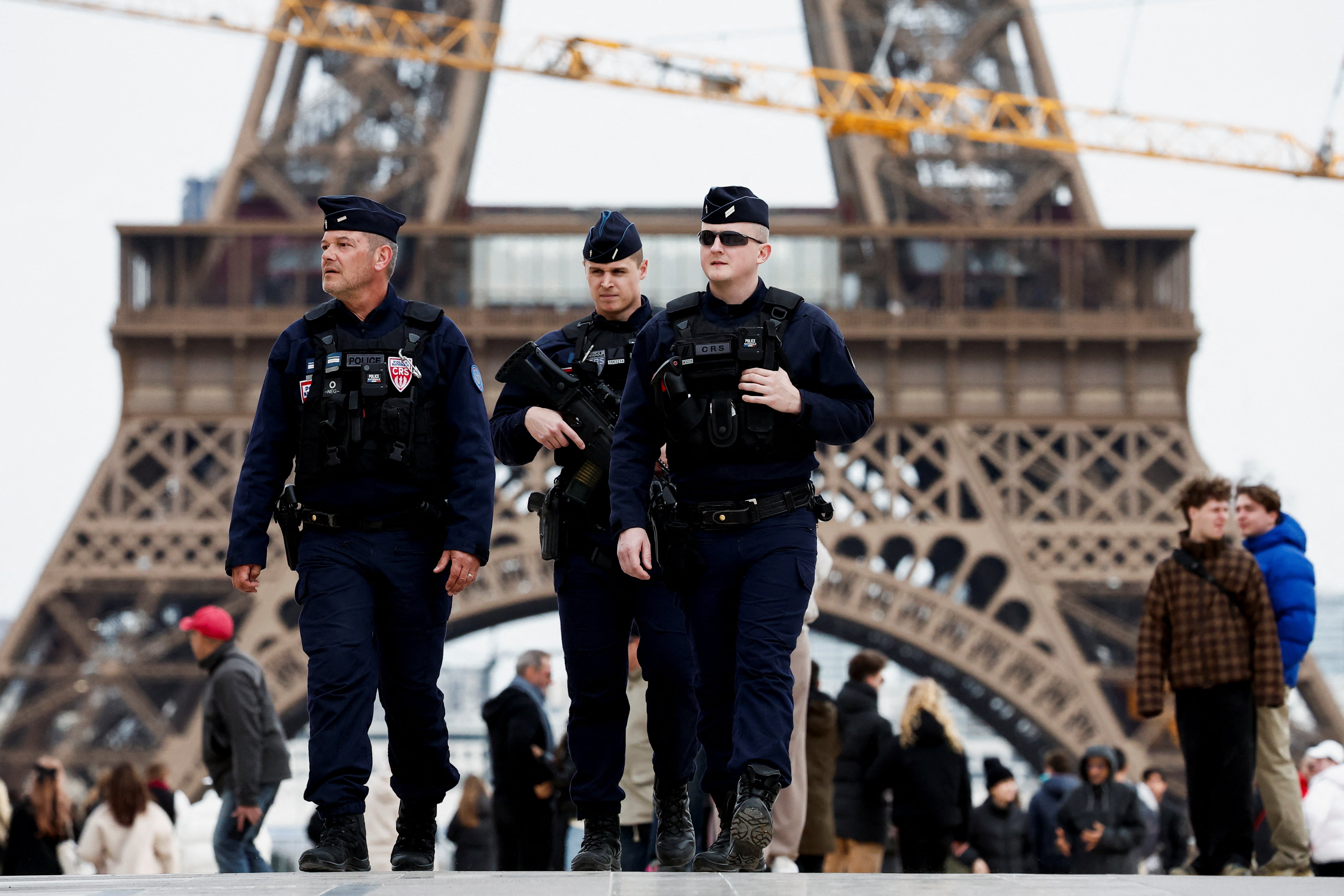How worried should we be about a resurgent Isis after the Moscow massacre?
Britain remains firmly in jihadist sights, with the national threat level raised to ‘substantial’ – indicating an attack is likely, writes Kim Sengupta


Britain is one of the forerunners of enmity towards Islam and Muslims: they are the ones who laid the foundation for the Zionist state in Palestine,” declares the cover story in the Voice of Khorasan, an English-language magazine linked to Isis-Khorasan (Isis-K), in its January edition.
The headline on the article, published by Al-Azam Media Foundation, which proclaims its adherence to Islamic State Khorasan Province, is “Reality of the Wild West: United Kingdom of Kufir [infidels]”.
On the topic of Britain, it says: “A list of their crimes against the Muslims is enormously long. The British Crusaders hardly left a stone unturned in their machinations against Islam. Ever since Muslims had engaged in war against the Crusaders, Britain played [a] most vital role.”
Despite initial attempts by Vladimir Putin and the Kremlin to link Ukraine to the massacre in the Moscow concert hall, the overwhelming evidence is that it was the Isis-Khorasan group that carried out the attack, claiming 137 lives and injuring 180. On Monday, Mr Putin said radical Islamists were behind the attack.
Isis, widely viewed as having been defeated as a force after the end of its “caliphate” and the killing of its leader Abu-Bakr al-Baghdadi five years ago, is now back in international focus after carrying out an attack that was described as truly “spectacular” in its lethal scope.
Isis-K, based in Afghanistan, has repeatedly threatened Russia in its propaganda bulletins, reflecting the central-Asian links of many of its fighters. The Kremlin and Mr Putin were charged with “having Muslim blood on their hands” historically in Afghanistan, Chechnya and Syria, but also in respect of killings in Africa’s Sahel by Moscow’s proxy mercenary groups.
Colin Clarke, of the Soufan Center, a Washington-based research group on terrorism, pointed out that “Isis-K has been fixated on Russia for the past two years, frequently criticising Putin in its propaganda.” Michael Kugelman, of the Washington-based Wilson Center, agreed that Isis-K “sees Russia as being complicit in activities that regularly oppress Muslims”.
On 3 March this year, Russia’s security service, the FSB, said six Islamist militants had been killed in the Ingush Karabulak region. The next planned attack four days later, however – on a synagogue at Kaluga, near Moscow – is likely to have been in retaliation for the Israeli onslaught on Gaza rather than the Russian destruction of Grozny.
But the West is also being targeted.
Last July, security forces in Germany and Netherlands arrested seven Tajik, Turkmen and Kyrgyz nationals who were suspected of plotting attacks in Germany. According to reports, some of the group had gone to Germany as refugees from Ukraine after the Russian invasion. There is nothing to suggest that they had any links with the Ukrainian government or its security services.
Emmanuel Macron accused the Russian government of deliberate “cynicism” in trying to implicate Ukraine in the Moscow attack. He said on Monday: “Information available to us ... as well as to our main partners, indicates indeed that it was an entity of the Islamic State [Isis] which instigated this attack.” He added: “This group also tried to commit several actions on our own soil.”
France will put another 4,000 military troops on standby for its Operation Sentinelle, to join the 3,000 already deployed to guard infrastructure, places of worship, schools and theatres across the country.
The Italian government has followed France’s lead in raising security. The interior ministry announced that “both surveillance and checks will be increased, paying the most attention to the places of greatest aggregation and transit of people, as well as sensitive targets”.
As the Voice of Khorasan article illustrates, Britain remains in the sights of violent jihadists. There should “absolutely” be concern about Isis-K, said the chancellor, Jeremy Hunt, at the weekend.
The national threat level, however, remains at “substantial”, indicating that an attack is likely – below “severe”, which means an attack is highly likely, and “critical”, which warns of imminent danger (that an attack is highly likely in the near future).
British security and intelligence officials say they have noticed a definite rise in the volume of Isis propaganda material threatening violence. There are exhortations for volunteers to join the jihad, with even an enhanced vetting procedure introduced recently after an apparent spate of unsatisfactory recruitment.
The UK’s “refreshed” counterterrorist strategy, “Contest”, stated eight months ago that individuals and small groups outside of large organised terror networks now dominate, making terrorists less predictable and harder to detect.
There have been nine domestic terror attacks in the last five years and a further 40 have been disrupted at a late stage by MI5 and police. Most of them were bombing and knifing plots, according to security officials – not mass shootings involving multiple attackers, such as the attacks carried out by Isis on the Bataclan theatre in Paris and now on the Crocus City Concert Hall in Moscow.
One reason for this is the stringent firearms control laws in this country. But 7/7 in London – and the Manchester Arena bombing seven years ago – showed the devastation that easily made explosive devices can inflict.
The “Contest” report warned of a “persistent and evolving” threat from Islamist terrorist groups overseas. While explicit affiliation and close ideological alignment with specific international terrorist organisations is “diminishing”, al-Qaeda and Isis show “signs of resurgence” and are responsible for “more broadly inspiring and radicalising Britons”.
Britain may not be immediately on the front line against Isis-K, but the lethal threat has not gone away. It remains very real.
Join our commenting forum
Join thought-provoking conversations, follow other Independent readers and see their replies
Comments
Bookmark popover
Removed from bookmarks